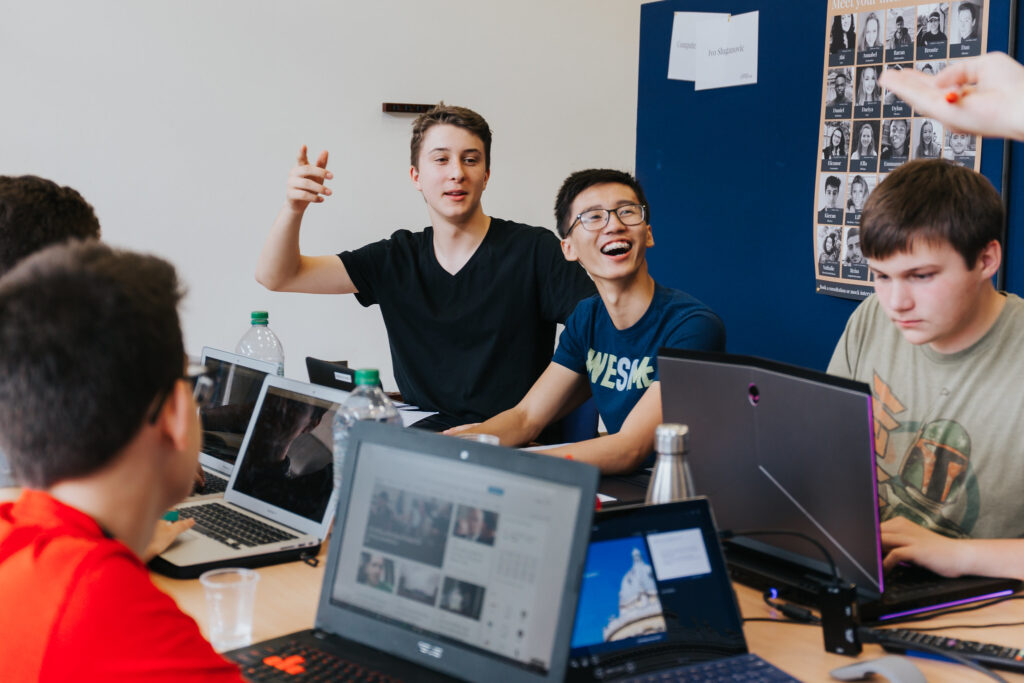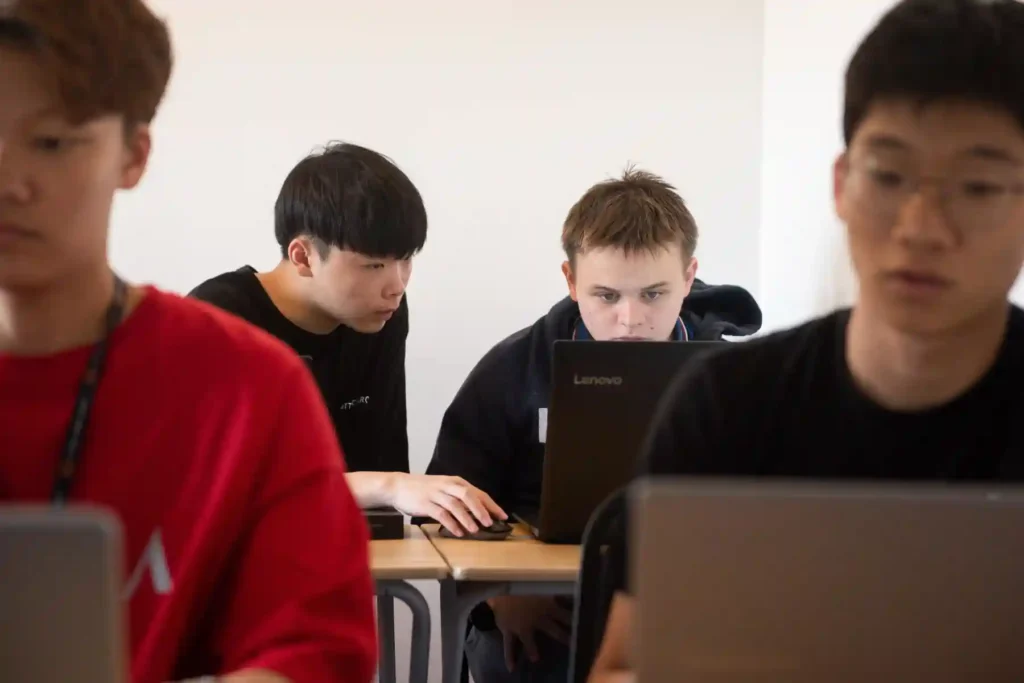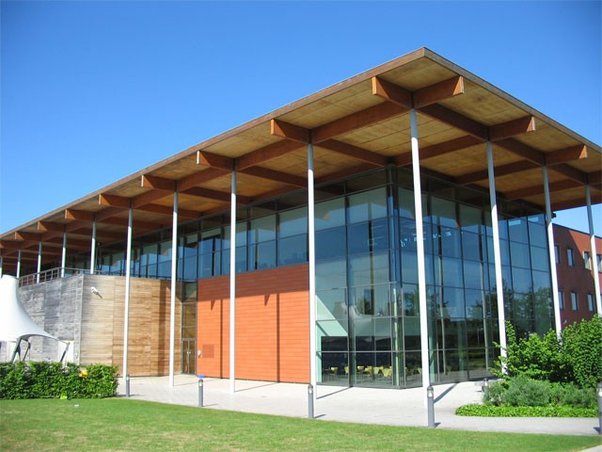Cambridge University offers a prestigious Computer Science program. Known for its rigorous academics and innovative research, the Computer Science department at Cambridge is highly regarded worldwide. The curriculum covers a wide range of topics including algorithms, programming languages, artificial intelligence, computer systems, and more.
Students have the opportunity to engage in hands-on projects and research with faculty who are leaders in their respective fields. Additionally, Cambridge provides a supportive and collaborative environment for students to thrive and develop their skills.
What core courses does Cambridge Computer Science offer?

Cambridge University’s Computer Science undergraduate program typically covers a range of core courses designed to provide a comprehensive understanding of computer science principles and applications. Some of the core courses typically offered in the Computer Science Tripos (Cambridge’s term for undergraduate courses) include:
- Programming
- Algorithms and Data Structures
- Computer Systems
- Theory of Computation
- Software Engineering
- Databases
- Artificial Intelligence
- Computer Graphics
- Security and Cryptography
How does Cambridge Computer Science support research endeavors?
Cambridge Computer Science supports research endeavors through various means, leveraging its rich academic environment, resources, and collaborative networks. Here’s how:
Faculty Expertise
Cambridge Computer Science benefits from a diverse and renowned faculty comprising experts across various domains within computer science.
These professors often lead research projects, publish extensively in top-tier journals and conference proceedings, and serve on editorial boards and program committees.
Their expertise not only attracts talented students and researchers but also fosters a culture of academic excellence and innovation within the department.
Research Groups and Labs
The department houses several research groups and labs, each focused on specific subfields of computer science.
For instance, the Computer Laboratory hosts research groups dedicated to areas such as computer architecture, distributed systems, natural language processing, and theoretical computer science.
These groups provide a collaborative environment where researchers with shared interests can work together, exchange ideas, and tackle complex research challenges collectively.
Funding Opportunities
Cambridge University offers various funding schemes to support research endeavors in computer science. These include internal grants and fellowships, such as those provided by the Isaac Newton Trust and the Cambridge Commonwealth, European & International Trust.
Additionally, researchers can apply for external funding from organizations like the Engineering and Physical Sciences Research Council (EPSRC), the European Research Council (ERC), and industry partners to support their projects.
Infrastructure and Resources
The university invests in cutting-edge infrastructure and resources to facilitate research activities in computer science. This includes access to high-performance computing facilities, advanced software tools and libraries, specialized laboratories equipped with state-of-the-art equipment, and dedicated research spaces for individual research groups.
Furthermore, the university library provides extensive digital and print collections, including journals, conference proceedings, and research papers, to support the scholarly endeavors of faculty and students.
Collaborations and Partnerships
Cambridge Computer Science actively fosters collaborations and partnerships with other academic institutions, industry players, and research organizations globally.
These collaborations facilitate knowledge exchange, joint research projects, and access to additional resources, including datasets, experimental facilities, and expertise from diverse domains.
Collaborative initiatives often result in interdisciplinary research outcomes and real-world impact, addressing societal challenges and driving technological innovation.
Publication and Dissemination
Researchers within the department are encouraged to disseminate their findings through publications in reputable journals and presentations at conferences and workshops.
Cambridge Computer Science has a strong tradition of scholarly dissemination, with faculty and students regularly contributing to top-tier venues in computer science and related fields.
Moreover, the department supports open access initiatives, enabling broader access to research outputs and fostering collaboration and knowledge sharing within the global research community.
What extracurricular activities are available for Cambridge Computer Science students?

Cambridge Computer Science students have a plethora of extracurricular activities available to them, catering to various interests and passions beyond academics. Here are some examples:
Student Societies
Cambridge University hosts numerous student-run societies related to computer science and technology. These societies organize events, workshops, and social gatherings, providing opportunities for students to network, learn from each other, and engage with industry professionals.
Examples include the Cambridge University Technology and Enterprise Club (CUTEC), the Cambridge Computer Science Society (CCSS), and the Women in Computer Science Society.
Hackathons and Coding Competitions
Hackathons and coding competitions are popular extracurricular activities among computer science students.
These events, often organized by student societies or external organizations, challenge participants to collaborate on innovative projects, solve real-world problems, and showcase their programming skills.
Students can participate individually or as part of a team, gaining valuable hands-on experience and potentially earning recognition and prizes.
Tech Talks and Workshops
Many companies and organizations host tech talks, workshops, and networking sessions on the Cambridge campus, providing students with insights into the latest trends, technologies, and career opportunities in the tech industry.
These events cover a wide range of topics, including software development, data science, artificial intelligence, cybersecurity, and entrepreneurship, and offer students the chance to interact with industry professionals and experts.
Entrepreneurship and Start-up Activities
Cambridge has a thriving entrepreneurial ecosystem, and computer science students interested in startups and entrepreneurship can participate in various activities to develop their ideas and skills.
This includes entrepreneurship workshops, pitch competitions, accelerator programs, and networking events hosted by organizations like the Cambridge Judge Business School, the Entrepreneurial Centre, and student-run entrepreneurship societies.
Open Source Contributions and Software Development Projects
Students interested in software development and open source can engage in collaborative projects and contribute to open source communities.
Cambridge Computer Science encourages students to participate in open source initiatives, providing opportunities to work on meaningful projects, collaborate with developers worldwide, and enhance their coding skills and industry experience.
Sports and Recreation
In addition to academic pursuits, Cambridge emphasizes the importance of a well-rounded student experience, including opportunities for sports and recreation.
Computer science students can join university sports clubs and teams, participate in intramural leagues and tournaments, and access facilities for activities such as rowing, football, tennis, and more.
Engaging in sports promotes physical well-being, teamwork, and work-life balance, complementing the academic rigors of the program.
Final Words
Cambridge University’s Computer Science program offers a comprehensive curriculum, renowned faculty, and diverse research opportunities. With a strong emphasis on hands-on learning and collaboration, students gain valuable skills and experiences that prepare them for successful careers in the field.
The program’s alumni have made significant contributions to both industry and academia, highlighting its lasting impact on the world of technology. As Cambridge continues to innovate and evolve, its Computer Science program remains at the forefront of education and research, shaping the future of computing.
